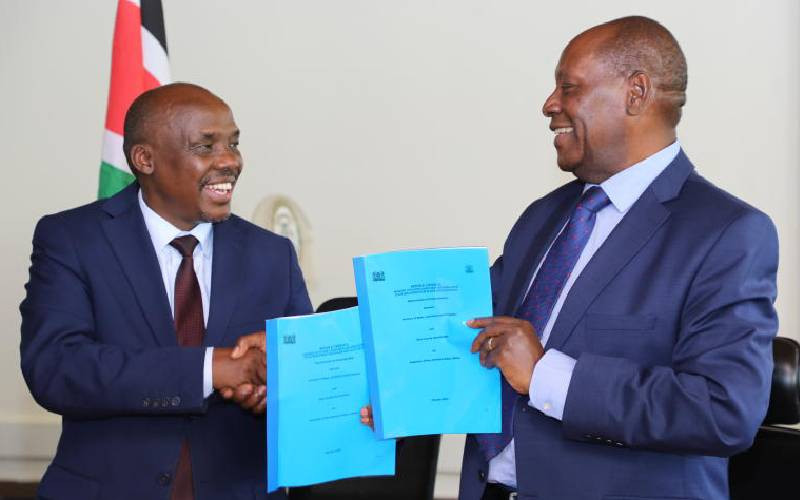×
The Standard e-Paper
Kenya’s Boldest Voice

The Ministry of Water and the Kitui county government has signed a memorandum of understanding (MoU) that could see the semi-arid region benefit from seven water projects.
Water Principal Secretary (PS) Kiprono Ronoh and Kitui governor Julius Malombe signed the MoU that would ensure completion of critical water projects that will alleviate biting water shortage in the county.